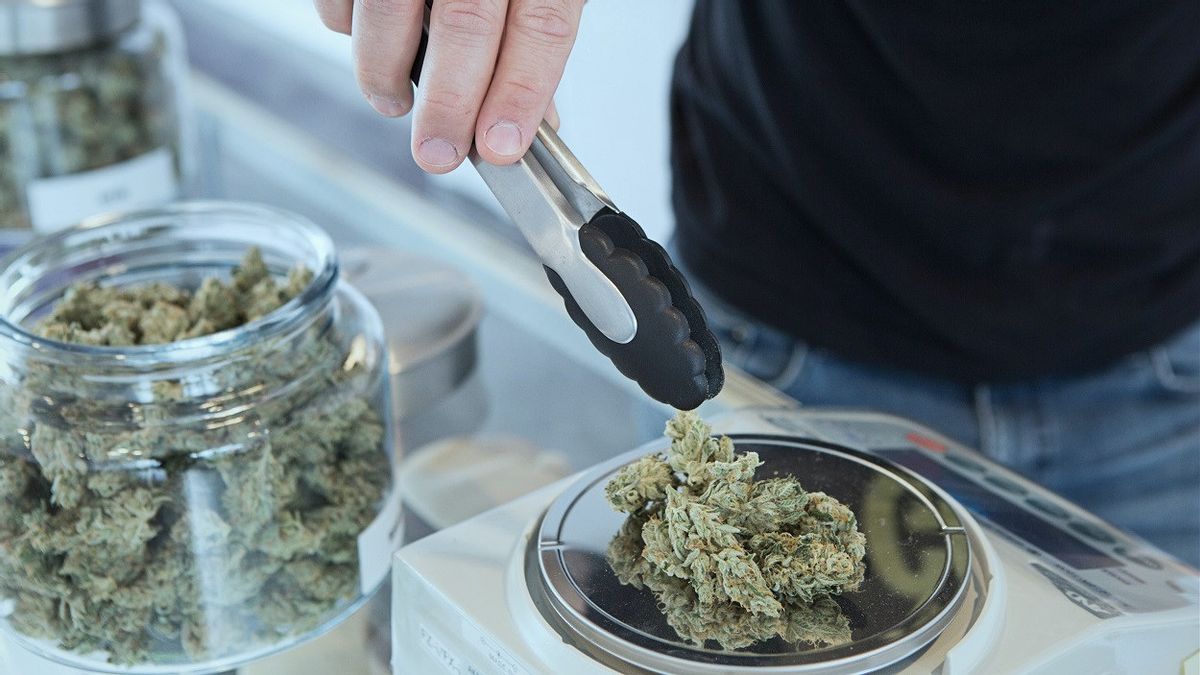JAKARTA - Thai people enthusiastically welcome the legalization of marijuana by the local government, with cultivation still being regulated and monitored, while enthusiasts question the quality and there are still laws awaiting violators.
Being the first country in Asia to legalize cannabis for food and drink starting last Thursday, Thailand is looking to boost its agriculture and tourism sectors.
Shoppers queue at outlets selling marijuana-containing drinks, candy and other goods, as factory supporters welcome reforms in a country that has long had a reputation for strict anti-drug laws.
Among those queuing in front of one of the shops in Bangkok is Rittipong Dachkul, 24, who has been waiting since Wednesday night to buy his first legal marijuana.
"I took the bus here after I got home from work," Rittipong told Reuters, as quoted June 11.
"We can now find it easily, we don't have to worry about the source. However, I don't know about the quality," he said, referring to the strength of the products offered.
Long before that, Thailand, which has a tradition of using marijuana to relieve pain and fatigue, legalized medicinal marijuana in 2018.

However, the possession and sale of cannabis extracts containing more than 0.2 percent of its psychoactive ingredient, tetrahydrocannabinol (THC), is prohibited, meaning smokers of the drug known as 'pot', 'weed' and a host of other names will struggle to be 'stoned'. '.
"Buds with 0.2 percent THC are considered low, so you need to consume a lot to get 'high'," explains Suphamet Hetrakul, co-founder of the Teera Group, which grows cannabis for medical use.
It is known, THC is concentrated in the flowers of plants, or buds. Meanwhile, those who violate the provisions of the law, can still face prison terms and fines.
Not only that, cannabis growers must register on a government application called PlookGanja, or grow marijuana, another nickname for a pointed leaf plant. Nearly 100,000 people have signed up for the app, said health ministry official Paisan Dankhum.
Suphamet said he was concerned about quality control among many new cultivators.
"It will be difficult to control the levels of THC and other contaminants in their products and that can be dangerous for consumers," said Suphamet.
Meanwhile, the Ministry of Health said it had approved 1,181 products including cosmetics and food, containing cannabis extracts and expects the industry to generate as much as 15 billion baht or the equivalent of 435.16 million US dollars by 2026.
It is known, the agro-industrial conglomerate Charoen Pokphand Foods Pcl and energy company Gunkul Engineering, agreed to work together to produce food and beverages containing the extract.
The English, Chinese, Japanese, Arabic, and French versions are automatically generated by the AI. So there may still be inaccuracies in translating, please always see Indonesian as our main language. (system supported by DigitalSiber.id)









